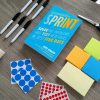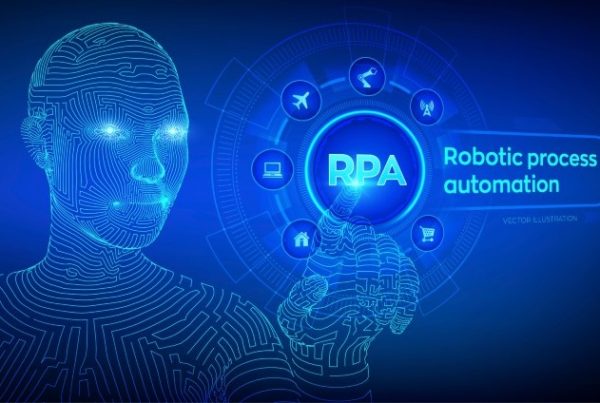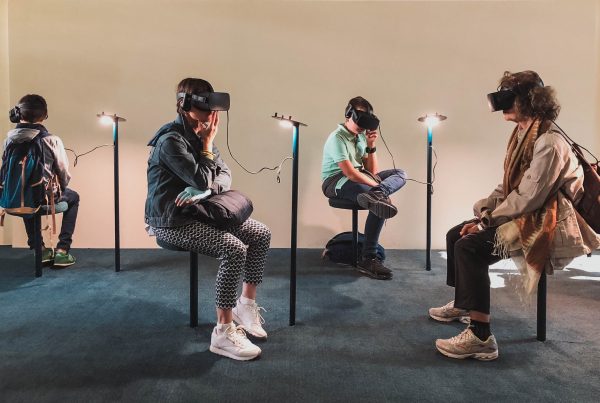How do you ensure that thirty thousand employees get the best answer to all their search queries? At KLM Digital Studio we are building MySearch, a new smarter search engine for KLM. How does that work?
Ask Jettro Coenradie what he has on his business card, and you will hear him say that he is “Search relevance engineer”. “Actually, I am a software architect,” he laughs. “But you know what? Search has acquired a completely different meaning in recent years. I think that requires another approach to the profession. Search is no longer the closing point of a website, a perk at its best. No, a search engine nowadays is often the most important tool for visitors to find their way. There is so much data. How do you get the information you need? More than ever, the point is that as a search engine developer you are able to build a search engine that yields truly relevant results.’ At KLM we have a lot of search engines in the internal network. The thirty thousand employees of the company use these, for example, to find out how they can arrange leave, follow courses or report sick. But the search engines have been around for a while and do not always deliver the best results. Coenradie therefore helps KLM Digital Studio to develop a new search engine for the internal websites and applications that can use some extra intelligence.
Ten thousand hits
It started with a hackathon. At KLM Digital Studio we like to investigate the applicability of new technology for KLM. During that hackathon in the early spring of 2018, the prototype of a new search engine was tested. Six months later, that prototype had already become a mature search engine and was implemented in the new MyKLM portal. It was the work of Coenradie together with product owner Bert-Jan Strating and their team. ‘After all, I am not interested in ten thousand hits at all when I type in a search term,” says Strating. ‘I have enough with a handful, if only what I am looking for is there. That was the starting point of the hackathon and is still the starting point for the new search engine. We do this, among other things, by indexing the content more intelligently: the search engine reads the entire text of a page or document. We also use lists with synonyms. These are search terms that are very likely to be related and that we make KLM-specific ourselves. For example, the frequently used search term “ID Card”: if you type this in, you will also see, for example, pages in which that word does not appear, but the word “access card”. We also look at how often an article is clicked after a certain search: if an article is clicked more often then you can assume that this is indeed the result that many users want to see. Based on this, we can optimize the search engine and get users to see more natural results.’
Elastic search
The search engine is built on technology from Elastic Search. That is not just a database search algorithm, says Coenradie. ‘The beauty of Elastic is that you can quickly search huge amounts of data. This works very differently from classic search engines where you release a search query on a database. When we add a website, we store all documents in the so-called Document store. The search engine then adds the keywords to an inverted index with which you retrieve your search results within a few milliseconds.’ That speed is nice, but an incremental improvement. The radical innovation of this new search technique is to be found in that Document store, explains the technician: ‘There you can record and search multiple websites. You do not need a separate search engine for different sites, but you can do it with one. It makes the search engine endlessly scalable. For example, we are now also working on compartmentalizing the results: if you do not have access to certain websites, you will not see any results. That’s all possible.’
The more often, the better
A cleverly thought out search engine. But what does that KLM ultimately bring? Strating: ‘A good search engine like MySearch ensures that you can find your way faster in the large amounts of information that are present in such a large company. This ensures that owners of this data are called less often by people who can not find what they are looking for. And we can advise on which information should or should no longer be offered. A good and modern search engine simply makes your company more efficient. ‘

At the moment MySearch searches the information in HR-related sites, such as MyKLM, NewsApp and Healthportal. Right now websites containing internal vacancies and training courses are high on the roadmap. The team is now talking with other KLM members to use MySearch more broadly, Coenradie: ‘Ultimately, we want to be able to provide a search engine that covers all sources of KLM and that you will see in various forms in websites and apps. We work every day to improve the search engine, so if you have questions or improvements, let us know. And especially: use MySearch, because the more the search engines are used, the better we can make them.’










